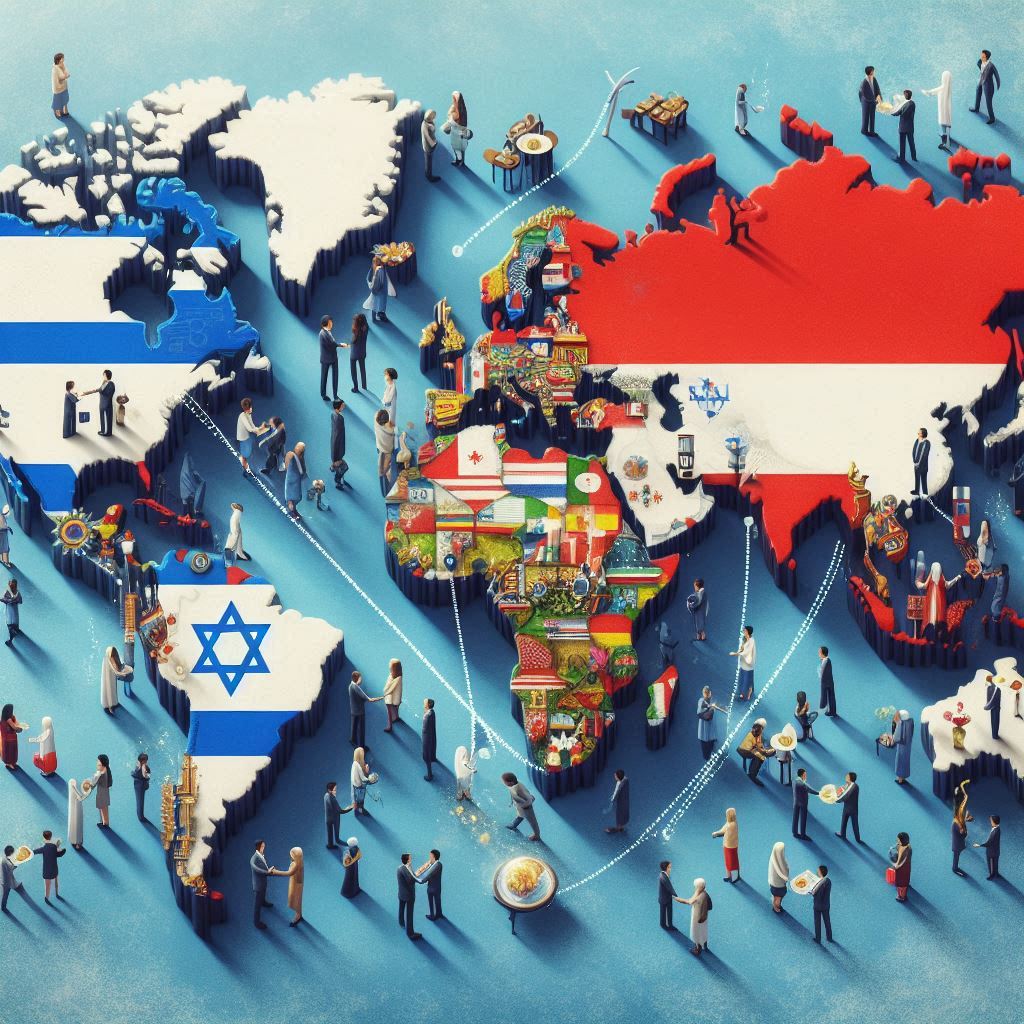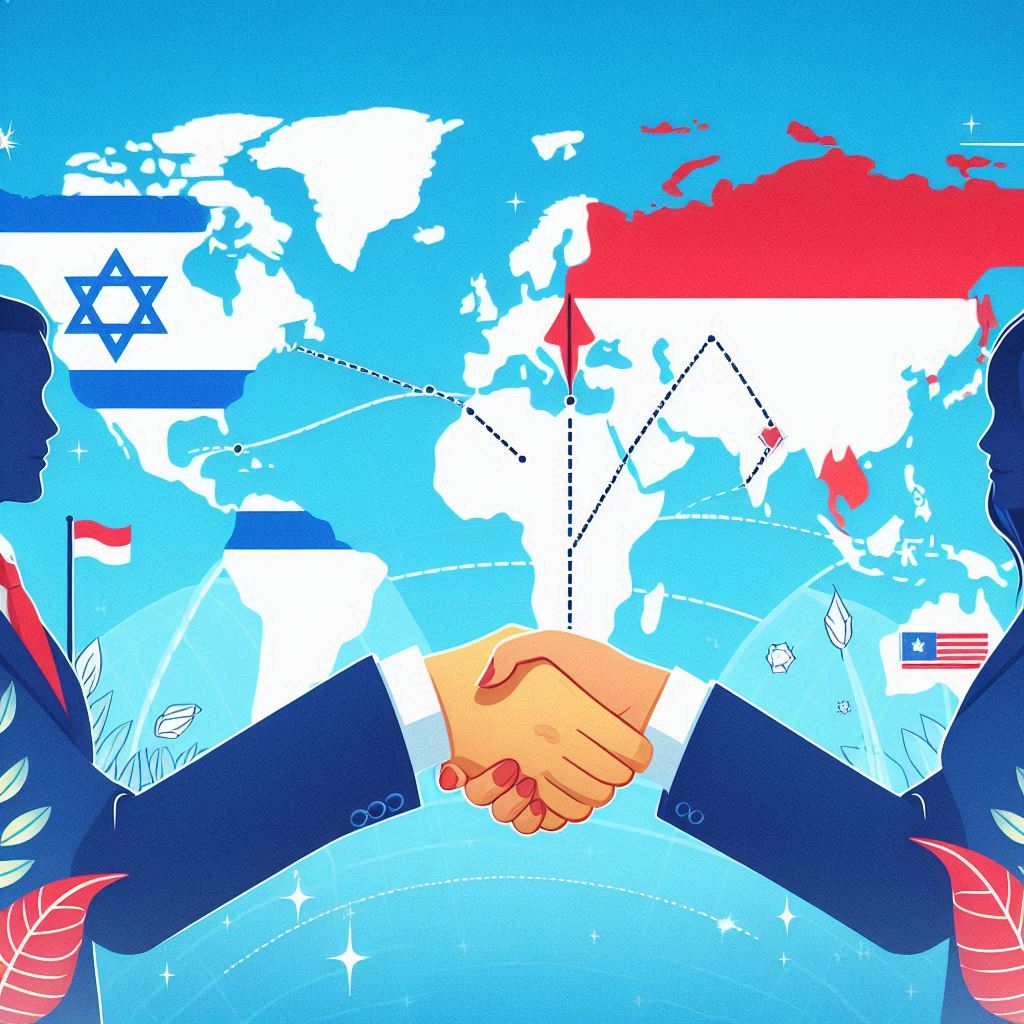Uncovering the Covert Spyware Trade
Troubling Ties In a startling revelation between Israel and Indonesia, a recent international investigation has shed light on the murky world of surveillance technology, exposing the covert dealings between Israeli firms and the Indonesian government. Despite the lack of formal diplomatic and troubling ties between Israel and Indonesia, it appears that at least four Israeli-linked companies have been actively selling intrusive spyware relations cyber-surveillance tools to the world’s most populous Muslim nation.
The investigation, conducted by Amnesty International’s Security Lab, utilized various open-source data, including trade records, shipping information, and internet scans, to uncover the connections between Indonesian government agencies and these Israeli tech firms: NSO, Candiru, Wintego, and Intellexa.
The findings paint a troubling picture of the surveillance state that is taking shape in Indonesia, with the potential for widespread violations of civil liberties and human rights.
The Troubling Ties Between Israel and Indonesia’s Surveillance State

——————————————————————–
The investigation revealed that the spyware imports to Indonesia often passed through intermediary firms in Singapore before reaching the hands of agencies like the National Police and the National Cyber and Crypto Agency.
Despite attempts by Amnesty International to engage with the Indonesian authorities, the responses were either limited or absent, highlighting the challenges in regulating the surveillance technology industry. This is not the first time that Indonesia’s involvement with Israeli spyware has come to light.
Previous reports have indicated the presence of NSO’s Pegasus spyware in the country, raising further concerns about the extent of the surveillance state for Troubling Ties Between Israel and Indonesia. Amnesty International has urged the Indonesian government to ban such invasive spyware technologies, emphasizing the importance of safeguarding human rights and privacy.
The Global Scrutiny Surrounding Spyware for Troubling Ties Between Israel and Indonesia
—————————————
The United States has taken a stance against the expansion of commercial spyware technology, imposing sanctions on Intellexa for its role in developing and distributing such tools. This global scrutiny underscores the growing worries about the abuse of surveillance technology and the potential for human rights abuses.
The covert nature of the spyware trade, as revealed in the investigation, makes it extremely difficult to detect cases of unlawful misuse.
Using these highly intrusive tools raises serious questions about protecting civil liberties and the decline of privacy, particularly in countries like Indonesia, where civic space has been shrinking due to limitations on freedom of expression and community.
Regulating the Surveillance Technology Industry

———————————————–
There are several hurdles to overcome to regulate the management technology sector. It is difficult for governments and international organizations to accurately monitor and control the flow of these technologies because of a lack of accountability and transparency combined with a complex network of middlemen and shell corporations.
Amnesty International’s call for the Indonesian government to ban the use of invasive spyware technologies is a step in the right direction, but it is clear that a more comprehensive approach is needed to address the broader issues surrounding the surveillance state. Troubling Ties Between Israel and Indonesia may involve supporting international cooperation, executing robust legal frameworks, and fostering greater transparency within the industry.
The Implications for Human Rights and Privacy
———————————————
The revelations from the Amnesty International investigation serve as a stark reminder of the urgent need to prioritize the protection of human rights and privacy in the digital age. The uncontrolled proliferation of surveillance technologies, particularly in countries with a track record of human rights abuses, poses a grave threat to the fundamental freedoms of individuals.
As the world grapples with the importance of the surveillance state, governments, civil society organizations, and the international community must work together to establish clear guidelines and accountability measures. Only then can we ensure that the pursuit of security does not come at the expense of the very rights and liberties that define a free and democratic society.
Towards a Transparent and Responsible Surveillance Industry
———————————————————————–
The revelations from the Amnesty International investigation into the covert spyware trade between Israeli firms and the Indonesian government serve as a wake-up call. They highlight the urgent need to address the complex and often opaque world of surveillance technology, where the pursuit of security can come at the expense of fundamental human rights and civil liberties.
As the global community continues to grapple with the implications of the surveillance state, it is clear that a concerted effort is required to establish robust regulatory frameworks, foster greater transparency, and ensure accountability within the surveillance technology industry. Only then can we safeguard the rights and freedoms of individuals, while also addressing legitimate security concerns.
Final Thoughts
Troubling Ties Between Israel and Indonesia, the path forward is not an easy one, but the stakes are too high to ignore. By shining a light on these troubling ties and the broader issues surrounding the surveillance state, we can work towards a future where technology is harnessed to empower and protect rather than to control and oppress. It is a challenge that Troubling Ties Between Israel and Indonesia demands the attention and collective action of governments, civil society, and the international community as a whole.
I have been surfing online more than 3 hours today yet I never found any interesting article like yours It is pretty worth enough for me In my opinion if all web owners and bloggers made good content as you did the web will be much more useful than ever before